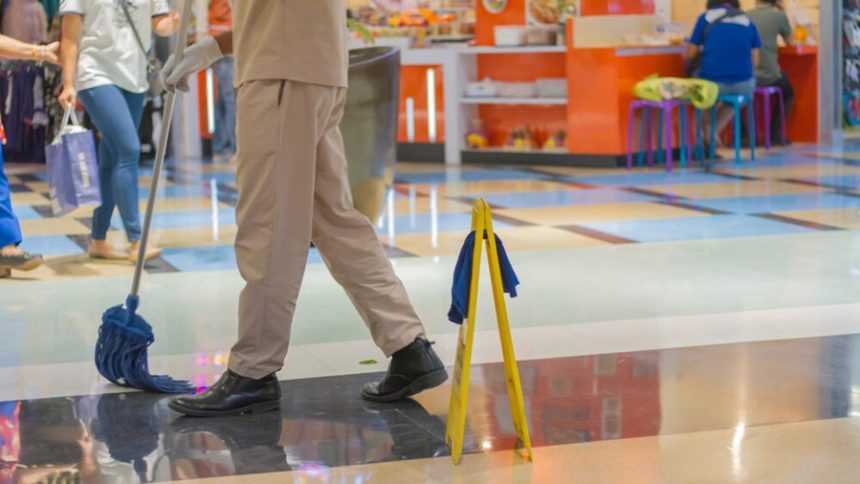Shopping centers and malls are busy places, drawing large crowds every day. With so many people moving through these spaces, accidents and injuries are common. Hazards like slippery floors, escalator malfunctions, and falling merchandise can pose significant visitor risks. Determining who is liable can be complex when an injury occurs, as responsibility may rest with different parties, such as mall owners, individual store managers, or even third-party contractors, depending on the situation.
Understanding the factors that influence liability is crucial for victims seeking compensation for their injuries. By examining the circumstances of the accident, identifying responsible parties, and understanding legal obligations, injured individuals can better navigate the process of holding the appropriate entities accountable and recovering damages for their losses.
Frequent Causes of Injuries in Shopping Centers
Injuries in shopping centers can occur due to a variety of hazards. Some of the most common causes include:
- Wet floors and cluttered walkways: Spills, debris, and uncleaned areas often lead to slips and falls, posing a significant risk to shoppers.
- Faulty escalators or elevators: Improperly maintained escalators, elevators, or other equipment can result in severe injuries for users.
- Poorly maintained parking lots: Cracked pavements, potholes, or insufficient lighting in parking areas can cause trips, falls, or vehicle-related accidents.
- Falling objects: Poorly stacked merchandise or unsecured signage can fall, potentially injuring customers.
The Role of Property Owners in Maintaining Safety
The property owner, typically the mall or shopping center management company, is primarily responsible for ensuring that the premises are safe for visitors. This includes maintaining common areas like parking lots, hallways, restrooms, and food courts. Property owners must regularly inspect these areas and address any hazards, such as slippery floors or faulty lighting, that could cause injuries.
If the property owner fails to maintain the space or ignores known hazards, they could be held liable for accidents that occur. Victims of shopping center injuries may be able to seek compensation for their injuries by demonstrating that the property owner’s negligence contributed to the accident.
Store Owners and Tenants: Their Responsibility
In many cases, individual stores within a shopping mall are responsible for maintaining the safety of their specific retail space. Store owners and tenants must ensure that their area is free from hazards, such as wet floors, broken displays, or obstacles in walkways. They are also responsible for training their employees on safety protocols, such as how to handle spills or maintain proper stocking procedures to prevent merchandise from falling.
If an injury occurs within a store, the tenant or store owner may be held liable for the accident. For example, if a customer slips on a spill inside a store that was not promptly cleaned up, the store may be responsible for covering the victim’s damages.
Third-Party Contractors: Shared Liability in Some Cases
Shopping centers often employ third-party contractors for various services, including security, cleaning, and maintenance. If an accident is caused by the negligence of a contractor, such as a cleaning crew failing to mark a wet floor or a maintenance team failing to repair a broken escalator, the contractor may share liability for the injury.
In these cases, victims may need to file claims against both the property owner and the third-party contractor. Determining liability can be complex, especially when multiple parties are involved. It’s important to thoroughly investigate the situation to establish who is responsible for the accident.
When Injuries Occur in Parking Lots
Parking lots are another common area where shopping center injuries occur. Property owners are typically responsible for ensuring that parking lots are well-lit, free of hazards like potholes or uneven pavement, and properly maintained. Accidents in parking lots can range from trips and falls to collisions involving vehicles.
If a property owner fails to maintain a safe parking lot, they can be held liable for any resulting injuries. However, if the accident involves another driver, the injured party may also need to pursue a claim against the driver’s insurance company for compensation.
Injuries Caused by Defective Products or Equipment
In some cases, injuries in shopping centers can be caused by defective products or faulty equipment. For example, if a customer is injured by a malfunctioning escalator, elevator, or shopping cart, the issue may not lie with the store or property owner but rather with the manufacturer or maintenance provider. In such cases, product liability laws may come into play, and the manufacturer of the defective product could be held responsible for the injury.
To pursue compensation in these cases, the injured party will need to prove that the defect directly caused the injury and that the product or equipment was being used as intended. This can be a complex process, as it often requires expert testimony and a thorough investigation into the product’s design or maintenance history.
Proving Negligence in Shopping Center Injury Cases
To hold a shopping center, store owner, or third-party contractor liable for an injury, the victim must prove negligence. This involves demonstrating that the responsible party failed to maintain a safe environment and that their failure directly caused the injury. Evidence such as security camera footage, witness statements, and maintenance records can play a critical role in establishing negligence.
Victims should also seek medical attention immediately after an injury to document the severity of their injuries, which can strengthen their claim. Gathering as much evidence as possible is crucial for building a strong case.
Seeking Legal Assistance After a Shopping Center Injury
Shopping center injury cases can be complex, especially when multiple parties may share liability. Seeking legal assistance is often necessary to navigate the intricacies of premises liability laws and ensure that all responsible parties are held accountable. An experienced attorney, such as a Kearny personal injury lawyer, can help gather evidence, negotiate with insurance companies, and pursue compensation for medical bills, lost wages, and other damages.
If you have sustained an injury in a shopping mall or retail establishment, it is advisable to seek legal counsel. A lawyer can provide guidance on your rights and advise you on the most appropriate steps to take in pursuing compensation for your injuries.
Time Limits for Filing a Claim
If you’re injured in a shopping center, it’s important to be aware that there are time limits, known as statutes of limitations, for filing a claim. In most cases, victims have a limited amount of time to file a personal injury lawsuit after an accident. The specific time limit varies by state, but if the deadline passes, you may lose your right to seek compensation.
Because of these time constraints, it’s critical to act quickly and consult with a personal injury attorney who can help you file your claim within the required timeframe. Delaying too long can weaken your case, as evidence may disappear and witnesses may become harder to locate.










